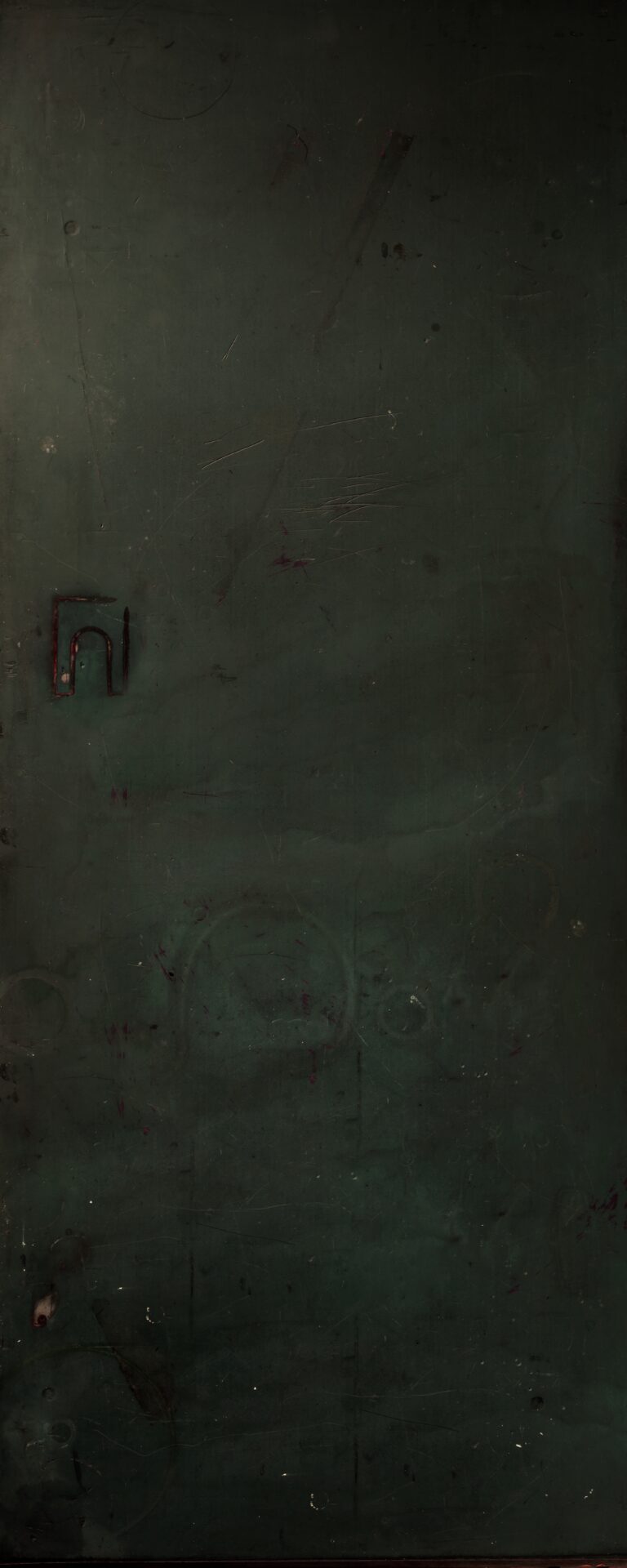The I Ching and Epigraphs in The Running Grave
Though Mazu Wace, wife of the founder of the Universal Humanitarian Church, misuses it to control the members of the Universal Humanitarian Church, the I Ching, or Book of Changes, is an ancient divination system full of poetry. You can learn more about its history and how it is used here. Extracts from the I Ching are used as epigraphs throughout The Running Grave, offering a commentary on the unfolding investigation and the lives of Robin Ellacott and Cormoran Strike as they delve into the secrets of the church.
Here we explore just a few of those epigraphs and see how they provide a poetic commentary on the events in which Strike and Robin become entangled.
Prologue
It took a long time for things to go so far. It came about because things that should have been stopped were not stopped soon enough.
The I Ching or Book of Changes
‘The suggestion that Mrs Wace ‘milks’ or ‘exploits’ the tragic death of her young daughter is a vile slur…’
The Running Grave, Robert Galbraith
Many of the investigations which Robin and Strike undertake have roots deep in the past. Sometimes, as in the case of Margot Bamborough, the crime itself took place a long time ago (Troubled Blood). In other investigations, like that into the death of supermodel Lula Landry, though the crime is more recent, its roots reach back many years; in Lula’s case into her childhood and family history (The Cuckoo’s Calling). The investigation into the United Humanitarian Church also means pulling apart layers of history, as the epigraph to the book indicates.
When Sir Colin Edensor approaches the detectives to try and expose the UHC as a cult in 2016, and save his son Will from their clutches, Robin and Strike need to dive deep into its foundation by Jonathan Wace, Mazu’s husband, and the death of the Drowned Prophet, Daiyu, their daughter in 1995. The correspondence in the prologue between one of their ex-members and their high-priced lawyers shows us something of that history, both the church’s version, and the version shared by its critics. The history they must explore goes back even further. The UHC was founded at Chapman Farm, after a previous commune, the Aylmerton Community, dissolved when its leaders were jailed for abuse. Mazu lived there at the time and Strike and his sister Lucy spent six months there in 1985, taken there by their unconventional mother, Leda.
The epigraph to the prologue comes from the commentary on the second hexagram, K’Un / The Receptive, a line to study if a six appears at the beginning of the hexagram. It also notes that a violent act, such as the murder of a master by a servant, or the father by a son, does not come out of the blue, but is the result of a long process.
Part One Chapter 6
Six in the fourth place means: A tied-up sack. No blame, no praise.
The I Ching or Book of Changes
She assumed these things would be discussed eventually, if the relationship continued.
The Running Grave, Robert Galbraith
This epigraph from the I Ching also comes from the commentary on the second hexagram, K’Un. Robin, walking to the tube after discussing Sir Colin’s case with Strike, thinks about her relationship with her business partner, and her boyfriend, CID Officer Ryan Murphy. Robin has tried to suppress her deeper feelings for Strike and her relationship with Ryan, free of jealous rows and grinding resentment, feels like a pleasant change from her failed marriage to accountant Matthew. Still, she is aware there is a certain guardedness in her relationship with Ryan. He does not talk about his drinking years, and Robin is careful to avoid discussing how much the problems in her marriage were due to Matthew’s resentment and suspicions of Strike. Much still remains neatly bundled away, as they avoid these subjects, and Robin can’t help brooding on the subtext of the conversation with Strike she has just had, which makes her feel disloyal to Murphy.
Part Two Chapter 26
The Joyous is the lake… it is a sorceress; it is mouth and tongue.
The I Ching or Book of Changes
It means smashing and breaking apart…
‘You feel that?’ said Mazu. ‘You have control over your own moods and your own state of mind. Grasp that, and you have placed your foot on the path that leads to pure spirit.’
The Running Grave, Robert Galbraith
Robin has been interested in mind control since it was touched on during her interrupted Psychology studies at university. It’s one of the reasons she is keen to go undercover as a possible recruit at Chapman Farm to uncover the inner workings of the UHC. Before she leaves for the farm, she’s given help and advice on what she might face by Prudence, Strike’s half-sister who is a well-regarded therapist. Prudence warns her no one, clever or not, is invulnerable to the mix of techniques they use, love-bombing you one minute and tearing you apart the next.
After arriving at the farm, Robin faces detailed questioning, limited food and hours of work, before being shown the inside of the temple, a place of marble and muted gold with scarlet creatures cavorting across the walls, where Mazu Wace is waiting. Hollow with hunger, she and the other recruits are commanded to laugh, and then kneel. She begins to feel the power of the techniques she has only heard of in theory, and the effect of being smashed apart and remade by the church.
The epigraph, which suggests both Mazu and the techniques of mind control she will employ, comes from one of the ancient commentaries on the I Ching, called the Eighth Wing, which delves deep into the symbolic power and resonances of the trigrams, a pair of which are combined into a hexagram to be consulted in the process of divination.
Part Three Chapter 40
… the most sacred of human feelings, that of reverence for the ancestors.
The I Ching or Book of Changes
It was time to wake Ted so they could have a last chat before leaving him, once more, to his loneliness.
The Running Grave, Robert Galbraith
While Robin is undercover at Chapman farm, Strike goes to St Mawes, Cornwall, to visit his widowed uncle Ted. Since the death of Ted’s wife, Joan, during the Bamborough investigation (Troubled Blood), Ted has been struggling, and Strike, for whom Ted and Joan’s house was a place of safety and stability in his chaotic childhood, is guilty he is not able to do more for him.
Strike’s sister, Lucy, feels the same mix of love and loyalty towards their uncle. She lived with him and Joan full time from the age of fourteen. Though Ted’s neighbours are rallying round, making sure his fridge is full, he’s increasingly forgetful, rambling and repetitive in conversation. The doctor diagnoses dementia, and Strike tells his sister he thinks it is time to look for sheltered housing. As he wonders what they should do, he looks out over the ocean where his aunt’s ashes are scattered, some irrational part of him seeking guidance from the distant, glittering waters.
The epigraph comes from the discussion of hexagram sixteen, Yü / Enthusiasm, made up of the trigram for thunder above and joy below.
Part Four Chapter 59
… to the thoughtful man such occurrences are grave omens that he does not neglect.
The I Ching or Book of Changes
‘The Frank brothers’ purchase of rope while wearing dubious disguises had now been followed by the acquisition of a very old van.’
The Running Grave, Robert Galbraith
While Robin’s stay at the Chapman farm turns ever darker and more frightening, Strike must, as the I Ching advises, be on the lookout for signs of change in his other cases. The agency has been helping actress Tasha Mayo deal with a pair of suspected stalkers, and his subcontractors have observed them making preparations which might indicate they are not just annoying, but deeply dangerous.
Strike advises Tasha to change her routine and is careful to let her know how serious the signs are. While watching a suspiciously ill-matched couple at the Connaught Hotel for another client, he also sees a news article about his former fiancée, Charlotte Ross, née Campbell being arrested for assault after a spectacular fight with her billionaire boyfriend. It includes a picture of the usually immaculate Charlotte, hair tousled, and make-up smeared. If Strike sees this too as an omen of dark days to come, he chooses not to act this time.
The epigraph comes from commentary on a six in the fourth line of the sixty-third hexagram, Chi-Chi or After Completion.
Part Five
K’uei/Opposition
Above, fire; below, the lake:
The image of OPPOSITION.
Thus amid all fellowship
The superior man retains his individuality.
‘I’m trying to learn and change. I was argumentative before I joined the church. That’s why my fiancé broke up with me. I suppose… my false self is still there, still clinging on.’
The Running Grave, Robert Galbraith
Robin is being tested to the breaking point at Chapman Farm, but knowing she is getting closer to the crucial information she and Strike need, she is determined to stay. She manages to join a trip to Norwich to sell merchandise with mixed results, but the mood at the farm is becoming more jittery. Fighting constant fear, suspicion, and hunger as well as having terrifying supernatural experiences, Robin has to hang on to her own identity against the pressure and power of the church and protect herself from discovery.
The hexagram, K’uei, which forms the epigraph for this section is number thirty-eight, and reminds us, and Robin, of the danger of evil men forcing themselves on us, and the necessity of enduring them, rather than shaking them off by force.
Part Six Chapter 87
Nine in the fourth place means:
The I Ching or Book of Changes
Then the companion comes,
And him you can trust.
‘…in an exhilarating burst of speed they were driving away, Strike having found a glorious release for his days of anxiety, Robin shaking and sobbing in relief.’
The Running Grave, Robert Galbraith
The respect between Robin and Strike has been built over years, and however complicated their mutual feelings, they trust each other completely. It seems only right then that it is Strike, worried and on watch after Robin misses her usual letter drop, who is waiting on the edge of Chapman Farm to collect her as Robin finally escapes, pursed by Taio and Jiang, Jonathan Wace’s sons.
Robin and Strike have supported each other through difficult moments in the past, anticipating each other’s needs in dark times. When Strike is keeping a vigil by his nephew’s hospital bed, it is Robin who drops everything to join him (Lethal White), and when Robin’s father needs a heart procedure, Strike arrives to help her move into her new flat, complete with a pot plant (The Ink Black Heart).
The epigram comes from a commentary on a nine in the fourth place of the fortieth hexagram, Hsieh / Deliverance, which speaks of forgiveness, returning to the regular order of life, and the clarity that comes after a thunderstorm.
Part Seven Chapter 96
Punishment is never an end in itself but serves merely to restore order.
The I Ching or Book of Changes
Robin started laughing again as she saw her partner’s expression change to one of pure glee.
The Running Grave, Robert Galbraith
While Robin has been working undercover at Chapman Farm, Strike has had to deal with the fallout from an unfortunate affair, and the vengeful exploits of rival private detective Mitch Patterson. Strike, and his subcontractor Dev Shah, think Patterson is unethical, among other things, and they all think his operation is shoddy. Robin has had unpleasant run ins with Patterson in the past too and the firm were originally hired by Sir Colin to investigate the church which holds his son. Patterson and his people made a mess of the job but losing it to Strike and Robin has made him eager to hit back, and he has used Strike’s careless love life to do so. Strike and his subcontractors manage to dodge the blow.
Robin, out of Chapman Farm, is on hand when Strike hears the news Patterson has been arrested and witnesses Strike’s glee as he deals with a problem still remaining at the agency, the taciturn and unpopular subcontractor Littlejohn.
The epigraph comes from the commentary on a nine in the top place of hexagram four, Meng/Youthful folly which speaks of dealing correctly with incorrigible fools.
Part Eight, Chapter 117
K’an represents the heart, the soul locked up within the body, the principle of light enclosed in the dark – that is, reason.
The I Ching or Book of Changes
Like the sitting room, Prudence’s consulting room was tastefully decorated in neutral colours. A few decorative objects, including jade snuff bottles and a Chinese puzzle ball, were arranged on wall shelves.
The Running Grave, Robert Galbraith
With Robin now out of Chapman Farm, the UHC are doing everything they can to impede the investigation and protect themselves from exposure while she and Strike work to find proof of their suspicions surrounding the mystery of the Drowned Prophet, and the current crimes of the church and its leaders.
Ex-members who have escaped the church are terrified of what may happen to them if they speak out, and many are attempting to deal with the trauma of what happened to them while they were members. In particular, they fear the supernatural revenge that they might be subject to from the Drowned Prophet if they reveal the secrets of the church. Strike and Robin must persuade them to share what they know and ask Prudence for her help. Knowing that bringing ex-members together to share their experiences could shed new light, they bring two key witnesses together in her consulting room in Strawberry Hill, a place of safety, they hope, and a place where traumatised victims might find the courage to speak.
The epigraph comes from the commentary on hexagram twenty-nine, K’an / The Abysmal, which is made up of water above, and water below.
Part Nine Chapter 123
Strength in the face of danger does not plunge ahead but bides its time, whereas weakness in the face of danger grows agitated and has not the patience to wait.
The I Ching or Book of Changes
‘Don’t rush it,’ warned Strike. ‘One false move could set off alarm bells.’
The Running Grave, Robert Galbraith
Robin, Strike and their subcontractors bend their wills to trying to find proof of Strike’s theory of what really happened to Mazu and Jonathan’s daughter, Daiyu. In face of continuing danger from the church, they meet with their police contacts including Robin’s boyfriend Ryan Murphy, her friend Vanessa Ekwensi, and Strike’s regular contact Eric Wardle in the basement of the local pub, The Flying Horse. The progress they are making seems slow and painful, and elsewhere in London their subcontractor Sam is attempting to land an important invitation. Strike tells him to keep trying.
The epigraph comes from the commentary on the fourth hexagram, Hsü / Waiting, or Nourishment, which is made up of water above and heaven below. It speaks of the vital importance of patience in the face of danger and having confidence in reaching a final goal.
Epilogue
T’ai/Peace
The I Ching or Book of Changes
No plain not followed by a slope.
No going not followed by a return.
He who remains persevering in danger
Is without blame.
Do not complain about this truth;
Enjoy the good fortune you still possess.
‘I can never,’ said Sir Colin, for the third time, ‘thank you enough.
The Running Grave, Robert Galbraith
The great danger and chaos which comes as the Universal Humanitarian Church is exposed, is followed by a moment of peace when Robin and Strike can, to some extent, celebrate their victories. Another case, and another challenge, will come in due course as the I Ching suggests, but for now at least the partners can breathe.
Strike, as the investigation concludes, has one more risky personal move to make; a confession which he knows might cost him everything. Still, if he wishes to be honest, and celebrate his good fortune honestly, he cannot avoid it any longer.
The epigraph is from the commentary on hexagram eleven, T’ai/Peace, which has earth above and heaven below, with a nine in the third place. It speaks of the importance of a rich inner nature, and the need to recognise that everything changes.




